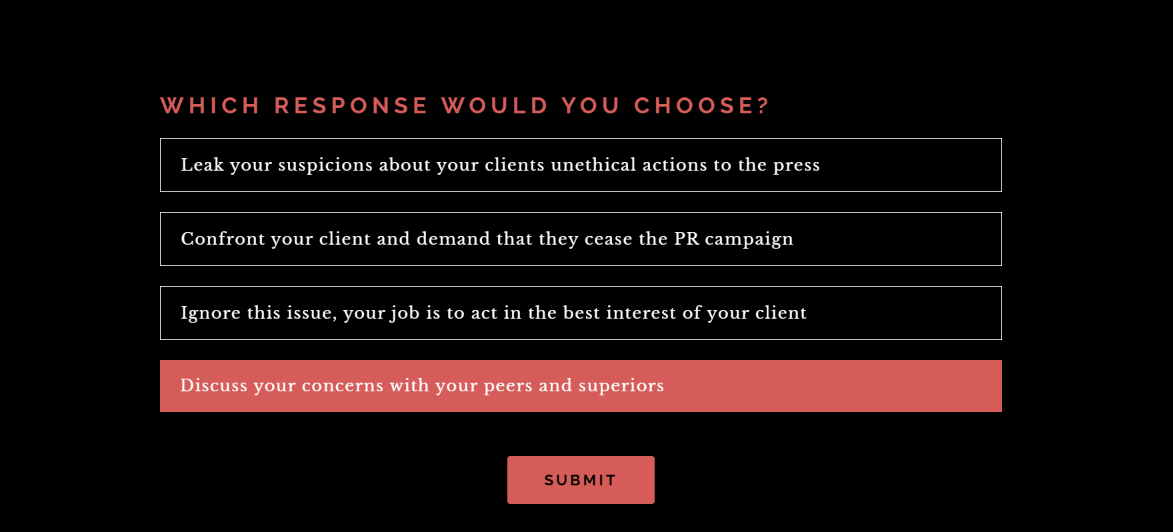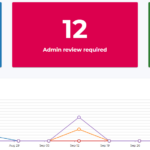Employees of law firms are regularly confronted with ethical dilemmas in the course of their work. These dilemmas stem from conflicting principles in the ethical code and the complex nature of legal work. VinciWorks’ new course, Ethics for Law Firms, part of the larger SRA training suite, introduces learners to the foundations of ethical thinking and provides the tools for how to deconstruct dilemmas, extract the conflicting principles, evaluate the situation and make a considered decision.

Course features:
- Fresh, modern, eye-catching, theme-appropriate design
- Clear, easy-to-read explanations of the SRA principles and how they come in to play in a variety of real life scenarios that employees are likely to encounter
- Includes a wide variety of scenarios from real cases with the ethical issues explained in detail
- Interactive exercises that allow users to test themselves on how they would respond in a variety of situations with various different issues at stake, in both employee’s professional and personal dealings
- Ends with a list of questions for employees to remember to ask themselves before making decisions

You can try out the course by clicking here, take a look at our whole SRA course suite here, or for more information, please fill out the short form below.















